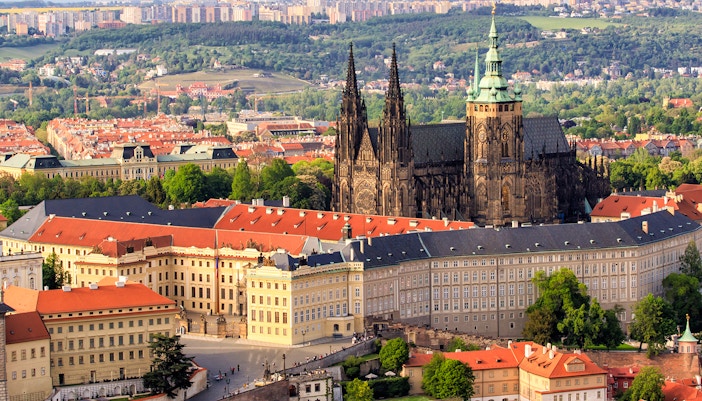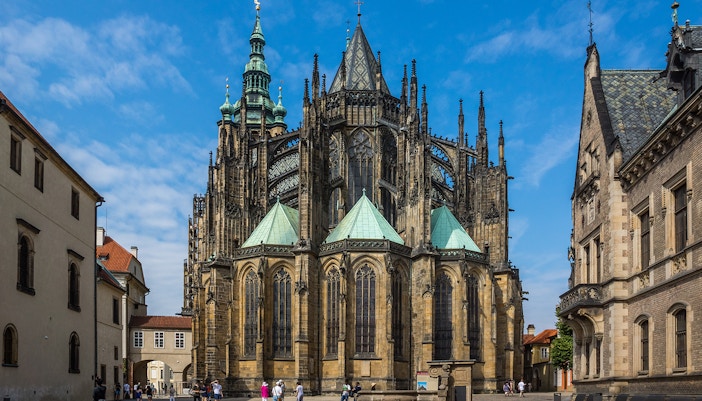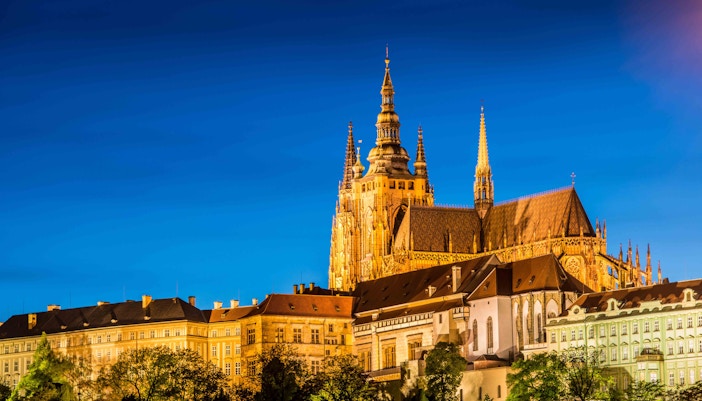Did you know that Prague Castle snagged itself a Guinness World Record title? Yep, it's recognized as the oldest ancient castle complex still in use. It has been around since the 9th century, hosting Bohemian kings, Roman Emperors, and Czech presidents. Spread across more than 70,000 square meters, the castle is practically a city boasting churches, palaces, gardens, and more. You can't miss the iconic St. Vitus Cathedral with its soaring spires or the charming Golden Lane, showcasing centuries of Czech heritage.
8 interesting Prague Castle facts
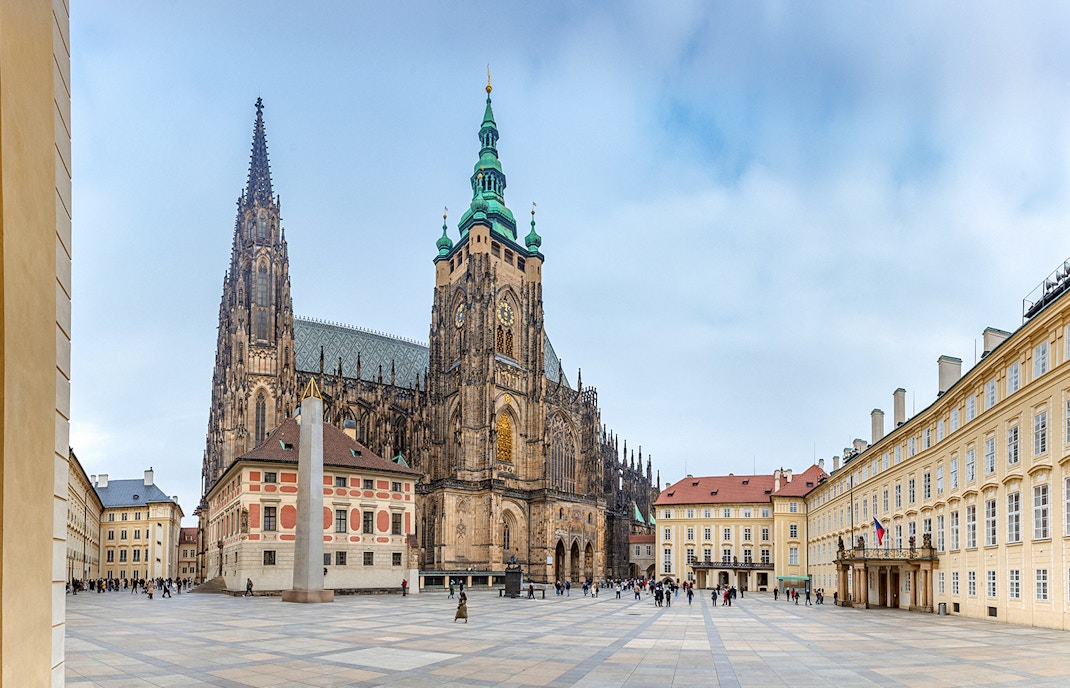
Prague Castle holds a Guinness world record.
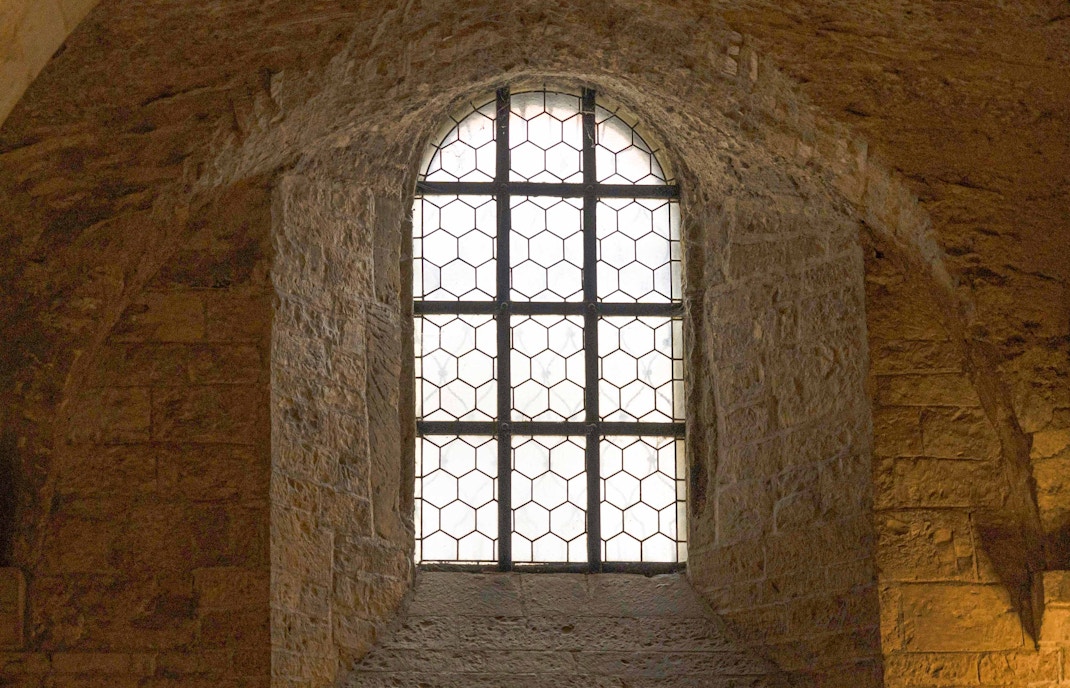
Lawbreakers were thrown out of castle windows.
Yes, this is true! The term "defenestration," meaning tossing someone out of a window, originated from this incident at Prague Castle. It happened because Roman Catholic rulers shut down a couple of Protestant chapels. The angry Protestants then called for a trial at the castle and won. Then, something wild happened. Two Catholic officials, convicted of religious suppression, were thrown out of the window! Thankfully, they landed in a heap of horse dung, escaping unharmed. However, the incident led to a long and devastating war across Europe.
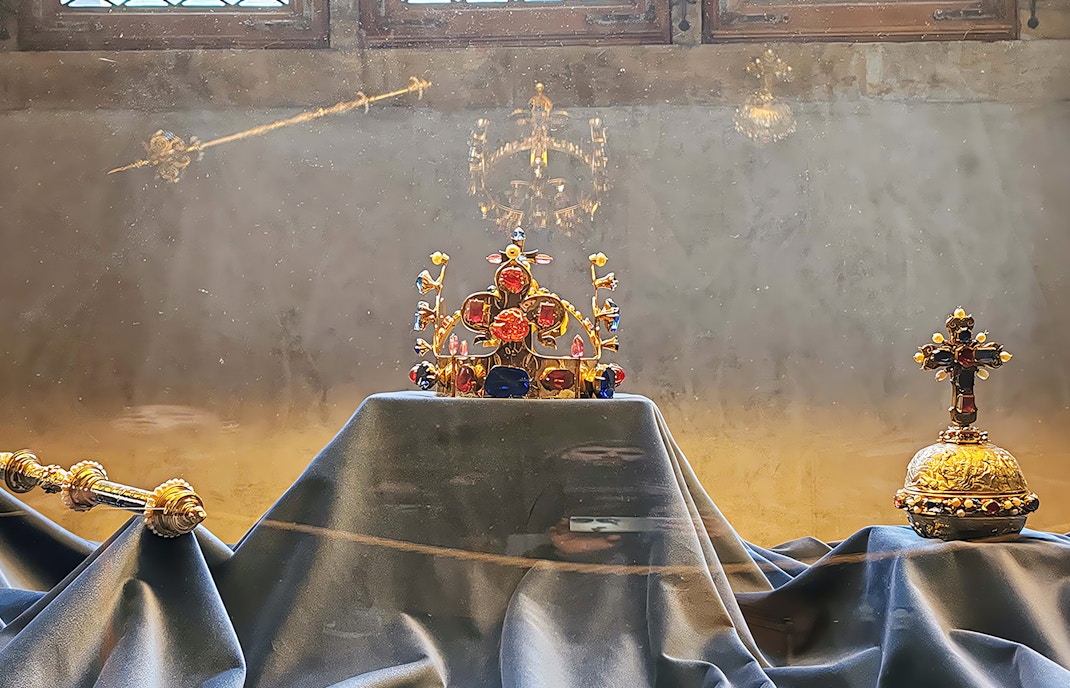
The Bohemian crown jewels have never been more secure.
The precious Bohemian crown jewels, including the St. Wenceslas crown, royal scepter, and coronation cloak, are safely stored inside a chamber in St. Vitus Cathedral. The jewels probably cannot be more secure than they are now.
To ensure their safety, the chamber door and iron safe have seven locks, each held by a different key holder, such as the president and prime minister. Accessing the jewels requires the presence of all key holders, and only the president can authorize their public exhibition, which happens only on special occasions.
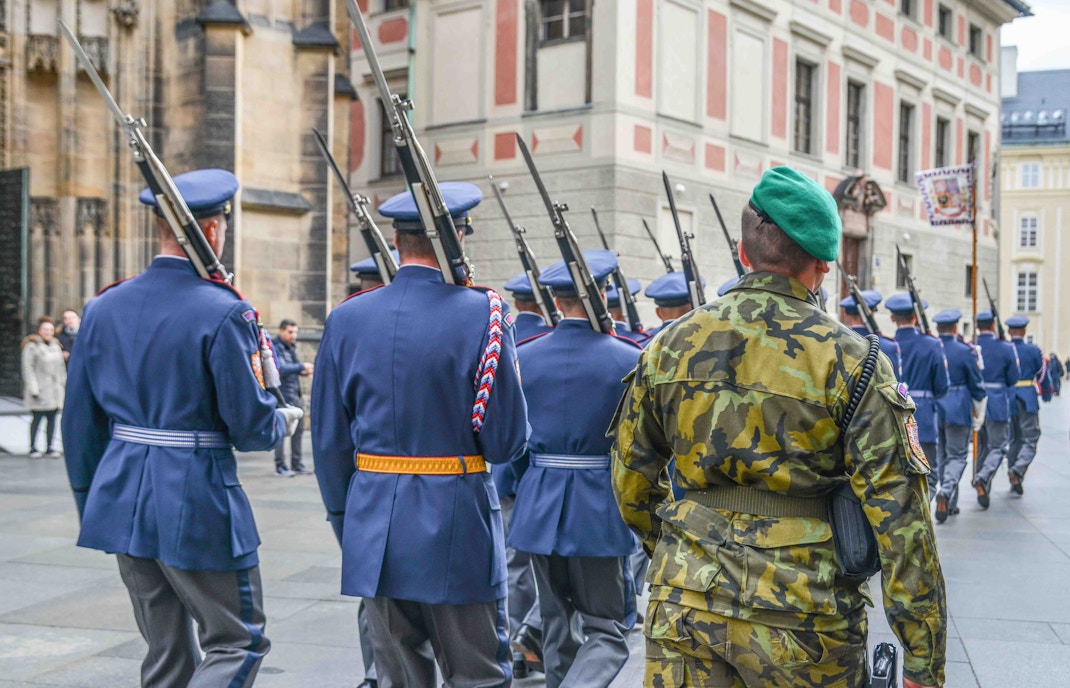
There is a Changing of the Guard ceremony.
Don't miss out on catching the traditional Changing of the Guard ceremony. Every day, soldiers, decked out in their vibrant uniforms, march with absolute precision from the Powder Tower to the Main Courtyard to swap places with the guards on duty. And it's not a silent affair; there's music involved, making it a whole spectacle.
The uniforms of Prague Castle Guards were created by Oscar-winning designer Theodor Pistek, who worked on the set of 1984's Amadeus. So, go ahead and take pictures with the guards dressed in their traditional uniforms, complete with weapons.
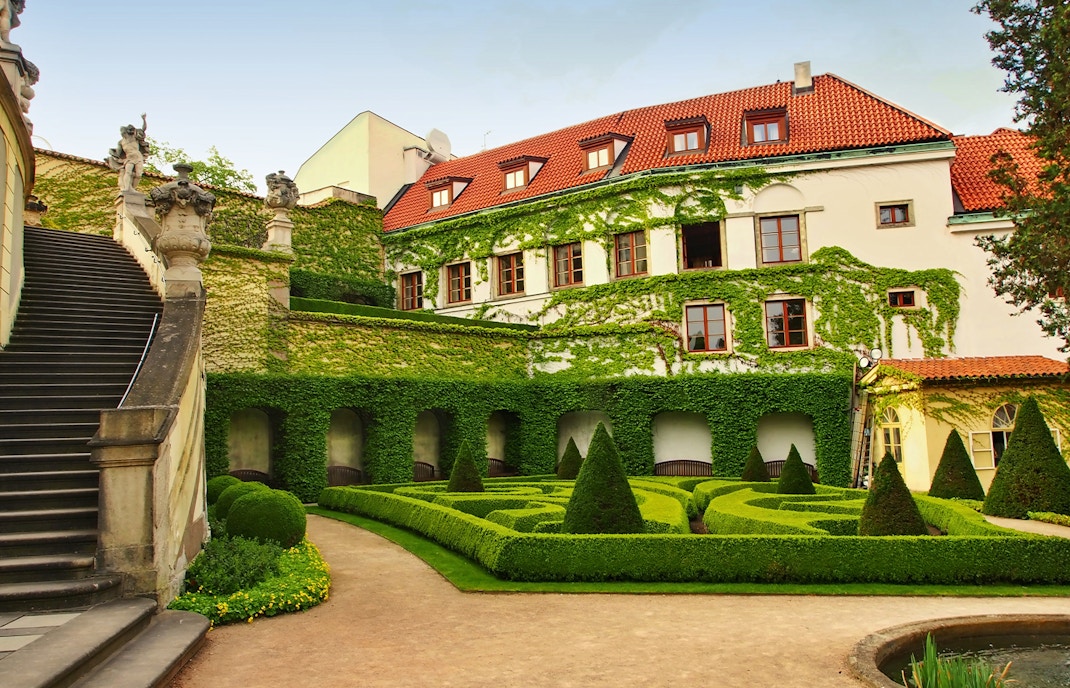
A tropical garden within the castle
In the 16th century, Emperor Rudolf II introduced tropical and citrus plants to Prague Castle. Today, this tradition thrives in the Orangery, a modern greenhouse established within the Royal Gardens in 1999. You can explore this lush haven during the summer season.
You can also explore other stunning Prague Castle gardens like the Royal Garden, the Garden on the Bastion, and the Southern Gardens, offering serene escapes amidst Prague's hustle and bustle.
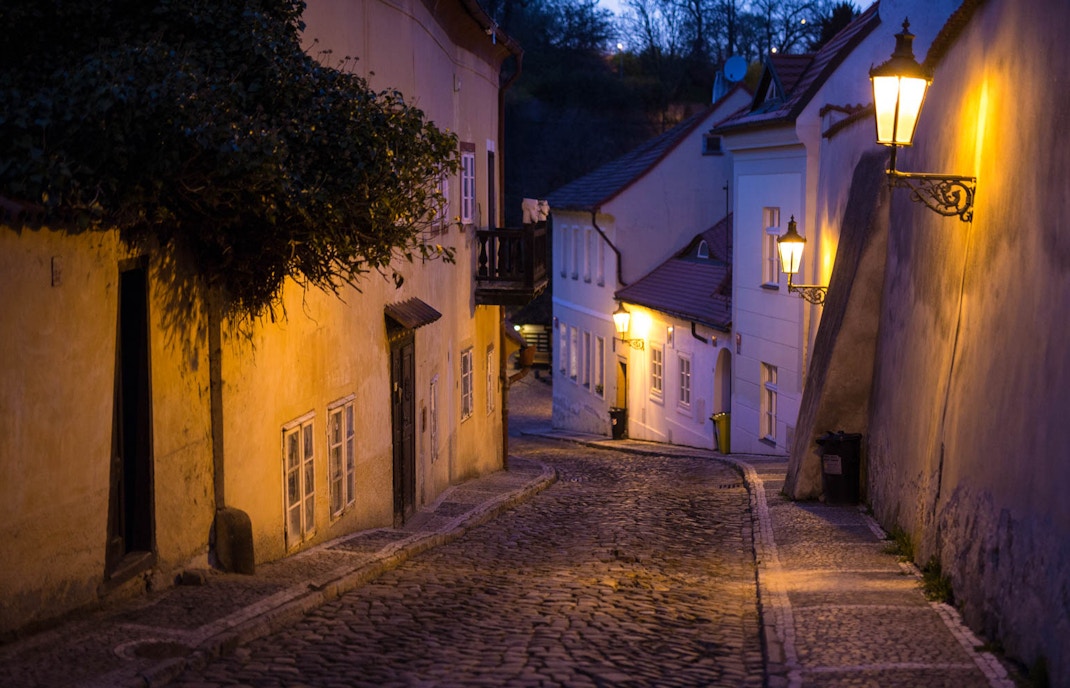
The Golden Lane and Franz Kafka
The Golden Lane in Prague Castle boasts quaint rows of tiny houses. In the late 16th century, Emperor Rudolf II housed alchemists here, striving to transmute metals into gold. However, today, it's bustling with tourists shopping for souvenirs.
Notably, from 1916 to 1917, Franz Kafka resided with his sister in House No. 22, where he penned works like A Country Doctor and found inspiration for The Castle. This charming alley, steeped in legend and myth, also houses exhibitions showcasing its 500-year history, offering visitors a glimpse into Prague's rich cultural heritage.
